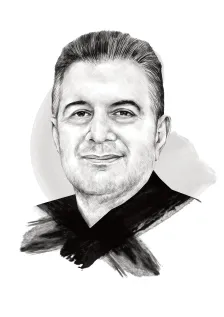No nation engulfed by war and internal strife has ever truly been saved by political or military agreements alone. Real salvation lies in economic recovery founded on justice, robust national institutions, and anti-corruption efforts. To recover, a nation needs clearly articulated national priorities, with stable environments allowing for opportunity.
Following the Second World War, Europe’s stability was not just created by politics. Rather, it stemmed from economic recovery in the form of the Marshall Plan, with urban reconstruction, the opening of markets, and the triumph of science, culture, and public health over narrow ideological dogmas. A similar formula—reconstruction, investment, job creation, and sustained economic growth—has led to healing from Rwanda to Colombia to South Korea.
In Lebanon, the 1989 Taif Agreement was not enough on its own to secure lasting civil peace. The late Prime Minister Rafik Hariri knew this in the 1990s and initiated a series of reforms, but these came to a crashing halt in 2005 (his killing), and since then, the country has been a tale of rising poverty, stagnant growth, and fewer jobs, before things culminated in the 2019 economic meltdown.
Needing solutions
Today’s Syria needs the help others had, yet the country more closely resembles a patchwork of fragmented regions, some under limited state control, others dominated by sectarian groups, whether they be Kurdish forces in the north-east or Druze in the south. These zones have been ravaged by conflict, plundered and tormented by a tyrannical regime. Industry, healthcare, and education systems all lie in ruins.
Political solutions in Syria will be hard-won, but the potential for building shared economic interests among Syrians offers a stronger incentive for cooperation than continued confrontation. Goods and services, not bullets, should be exchanged. Money and trade have a unique power to dismantle psychological barriers and bring parties the table of national reconciliation.
In that context, a Saudi ‘investment corps’ flew into Damascus Airport last week, at the personal direction of Crown Prince Mohammed bin Salman. It marked the launch of the Syrian Saudi Investment Forum (SSIF) and is the clearest signal yet about the Kingdom’s commitment to Syria’s economic future.
“We trust that Syrians will lead their country’s economic recovery,” said Saudi Investment Minister Khalid Al-Falih. “Transparency and guarantees are key, and this forum is the spark that will ignite investment flows into Damascus.” Leading a delegation of 120 top Saudi business leaders, Al-Falih announced immediate investments in 47 projects worth $6.4bn that are expected to create around 50,000 new jobs.
Starting from scratch
Saudi Arabia’s initiative is a strategic milestone and sends a message to the world that Riyadh is invested in delivering peace and unity to the Syrian people, two-thirds of whom live in poverty, suffering the effects of rampant unemployment, especially among the youth. This stretches across all sects and ethnicities, a legacy of the half-century father-son Assad dictatorship.




